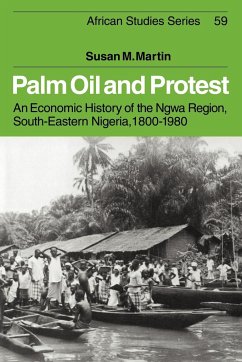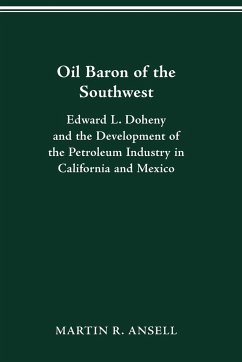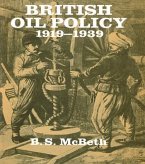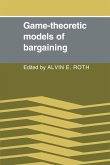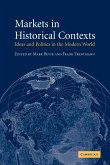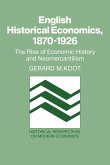This book describes the rise and fall of the oil palm export industry.
The Ngwa region lies in the heart of the Nigerian palm belt. Palm oil is one of the oldest foodstuffs of the region and has also been an export crop, produced mainly by women, from the early nineteenth century to the present day. This book describes the rise and fall of the oil palm export industry. In contrast to the views of both dependency and vent-for-surplus theorists, it is shown that patterns of export growth and capital investment were heavily influenced by locally inspired changes in food production methods, gender and intergenerational relationships. The processes of change within the domestic and export economies became increasingly closely intertwined after 1924, when African coastal middlemen began to settle further inland and to spread the knowledge of cassava and Christianity, and when colonial officials introduced direct taxation and consolidated their Native Court system. This book draws upon a wide range of economic, botanical, anthropological and historical studies as well as on colonial archives, but its heart lies in the oral evidence and life histories generously provided by Ngwa men and women.
Review quote:
"...Susan Martin has written a perceptive study, and a worthy successor to other major writers on the economic history of the eastern areas of Nigeria, from Dike through Jones to Northrup. She is to be congratulated."
A.J.H. Latham, International Journal of African Historical Studies
Table of contents:
List of maps and figure; Acknowledgements; Abbreviations; 1. Introduction; 2. Ecology, society and economic change to 1891; 3. The Ngwa and colonial rule, 1891-1914; 4. The expansion of the oil palm industry, 1884-1914; 5. The end of the boom; 6. Cassava and Christianity; 7. Authority, justice and property rights; 8. Trade, credit and mobility; 9. Production and protest: the Women Riot, 1929; 10. Cash cropping and economic change, 1930-80; 11. Conclusion; Statistical appendix; Notes; Interviews conducted in the Ngwa region, 1980-1; Bibliography; Index.
Hinweis: Dieser Artikel kann nur an eine deutsche Lieferadresse ausgeliefert werden.
The Ngwa region lies in the heart of the Nigerian palm belt. Palm oil is one of the oldest foodstuffs of the region and has also been an export crop, produced mainly by women, from the early nineteenth century to the present day. This book describes the rise and fall of the oil palm export industry. In contrast to the views of both dependency and vent-for-surplus theorists, it is shown that patterns of export growth and capital investment were heavily influenced by locally inspired changes in food production methods, gender and intergenerational relationships. The processes of change within the domestic and export economies became increasingly closely intertwined after 1924, when African coastal middlemen began to settle further inland and to spread the knowledge of cassava and Christianity, and when colonial officials introduced direct taxation and consolidated their Native Court system. This book draws upon a wide range of economic, botanical, anthropological and historical studies as well as on colonial archives, but its heart lies in the oral evidence and life histories generously provided by Ngwa men and women.
Review quote:
"...Susan Martin has written a perceptive study, and a worthy successor to other major writers on the economic history of the eastern areas of Nigeria, from Dike through Jones to Northrup. She is to be congratulated."
A.J.H. Latham, International Journal of African Historical Studies
Table of contents:
List of maps and figure; Acknowledgements; Abbreviations; 1. Introduction; 2. Ecology, society and economic change to 1891; 3. The Ngwa and colonial rule, 1891-1914; 4. The expansion of the oil palm industry, 1884-1914; 5. The end of the boom; 6. Cassava and Christianity; 7. Authority, justice and property rights; 8. Trade, credit and mobility; 9. Production and protest: the Women Riot, 1929; 10. Cash cropping and economic change, 1930-80; 11. Conclusion; Statistical appendix; Notes; Interviews conducted in the Ngwa region, 1980-1; Bibliography; Index.
Hinweis: Dieser Artikel kann nur an eine deutsche Lieferadresse ausgeliefert werden.

